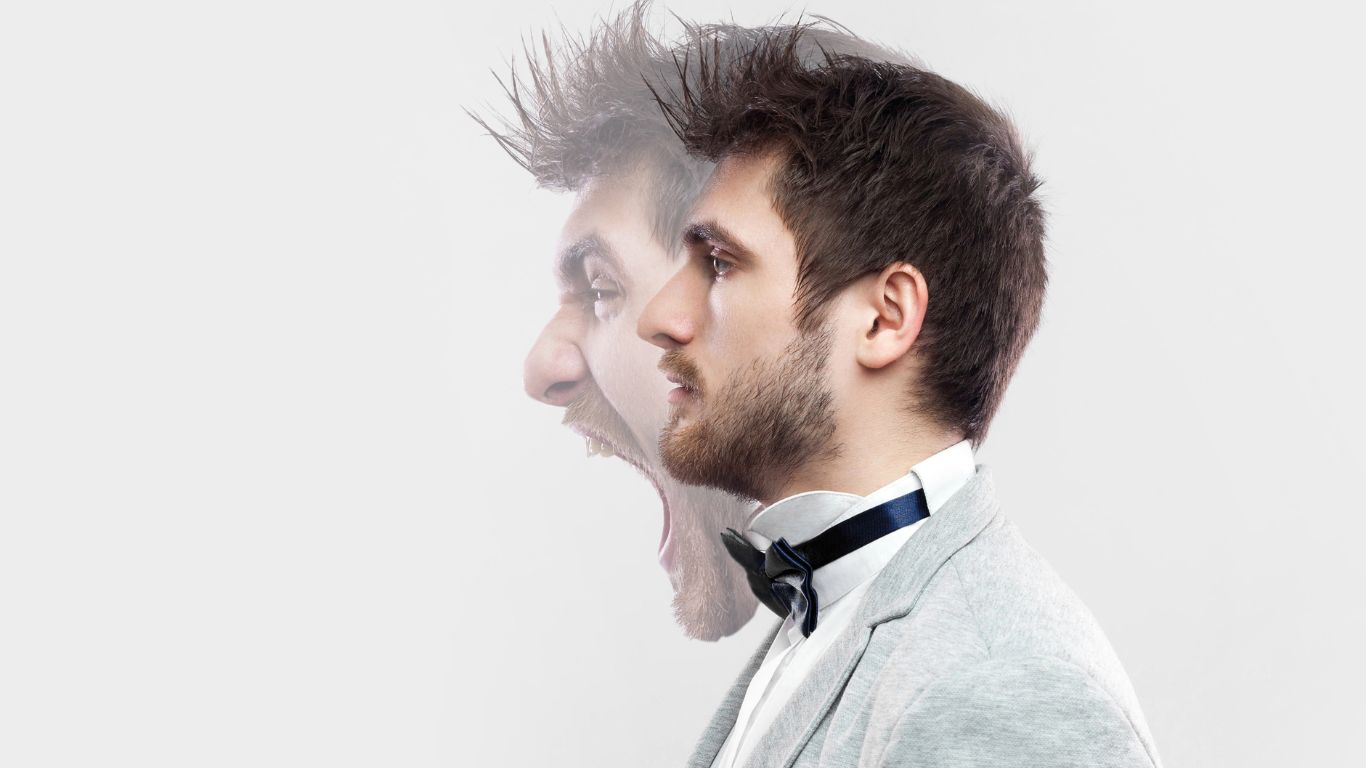What is Bipolar Disorder?
Bipolar disorder is a mental disorder that causes distinct changes in mood, energy, and the ability to function normally, experiencing mania or depression. These are often intense changes that cause uncharacteristic behaviors that last every day, for most of the day, for several days or weeks.
Mania
When a person is in an episode of mania, they will feel energized, irritable, elated, invincibility, and begin to make grandiose plans and feel like they can take on the world. They may engage in risky or chaotic behavior, spend a lot of money, talk rapidly, or explode with rage, experiencing poor sleep or insomnia.
Depression
During a period of bipolar depression, a person will feel indifferent, sad, down, forgetful, and sleep more than usual. They may feel hopeless or suicidal.
There are three types of diagnosable bipolar disorder:
- Bipolar I Disorder – manic episodes that are severe, requiring hospital care or lasting 7 or more days at a time, and depressive episodes typically last 2 weeks or longer
- Bipolar II Disorder – alternating between depressive episodes and hypomanic symptoms (not severe mania)
- Cyclothymic Disorder – periods of hypomanic symptoms and periods of depressive symptoms that do not meet the exact diagnostic requirements for bipolar disorder
Bipolar disorder is usually diagnosed in children and teens, or early adulthood, or may appear during pregnancy. It often requires lifelong treatment by mental health professionals.
What Causes Bipolar Disorder?
Although studies are still underway to discover why a person develops the disorder, it is the general consensus that, like most psychiatric disorders, there is not one single cause. There are certain risk factors that may increase your likelihood of developing this mental health disorder, including:
- Having a first-degree relative (parent, sibling, or child) who has it, as research suggests that people with specific may be more likely to develop this disorder so it runs in families to some degree
- Environmental factors may play a part in exacerbating symptoms in a person with bipolar disorder, including stress, traumatic life events or substance abuse
- A person’s brain structures can be an indicator that they are prone to developing bipolar disorder, but this theory is still being researched
The Most Common Symptoms of Bipolar Disorder
Symptoms of mania and hypomania in people with bipolar disorder often look like:
- Increased activity levels and hyperactivity
- Changes in mood, feeling “up”
- Feeling jumpy
- Short attention span
- Not needing to sleep or eat as much
- Talking fast with racing thoughts
- Taking excessive risks
- Feeling unusually important, powerful, or talented
- Inflated self-confidence
- Preoccupation with a specific goal
Symptoms of major depressive episodes include:
- Feeling “down”, sad, worthless, or hopeless
- Having sleep issues
- Feeling “slow”
- Feeling restless
- Weight gain and increased appetite
- Being unable to do simple tasks, feeling overwhelmed
- Difficulty concentrating
- Fatigue
- Talking slowly
- Loss of interest and pleasure in life
- Thinking about death or suicide
Treatment for Bipolar Disorder
The most common treatments for bipolar disorder are:
- Medications – usually mood stabilizers and antipsychotics, sometimes with sleep medicine and anti-anxiety medicine
- Psychotherapy (talk therapy) and cognitive behavioral therapy
- Electroconvulsive therapy (ECT) brain stimulation for severe depressive symptoms and manic episodes
- Regular exercise including aerobic and anaerobic workouts
- Keeping track of daily moods, mood swings, and mental health symptoms for easier care
- Transcranial magnetic stimulation and supplements are also used in some cases, with more research required to fully understand how this works to treat symptoms of bipolar disorder
Drug Abuse, Bipolar Disorder, or Both?
Substance abuse and mental illness often go hand in hand, as there are several risk factors that both disorders share, including genetic disposition and environmental factors. Bipolar symptoms may contribute to drug use as people try to self-medicate, using different drugs during manic vs. depressive states. Alternatively, drug use can contribute to developing bipolar disorder, making the symptoms worse and causing physical changes to brain functions and chemistry, especially the reward system, leading to compulsive and drug-seeking behavior.
A co-occurring substance use disorder and mental health condition like bipolar disorder, mood disorders, major depression, anxiety disorder, or other mental health conditions can be treated in an integrated and comprehensive dual diagnosis addiction treatment program.
Get Help for Bipolar Disorder Dual Diagnosis
At TruPath treatment center for alcohol or drug addiction, we have dual diagnosis mental health care programs. We understand bipolar disorder and are able to treat bipolar symptoms and underlying issues while simultaneously providing an individualized treatment plan that includes physical health care, medical detox protocols, one-on-one and group therapy, psychiatric care and medication, holistic care and other programming. Contact our team today to find out more about our dual diagnosis treatments, and how we can help you recover from substance abuse while providing the consistent and competent integrated mental health care you need.
